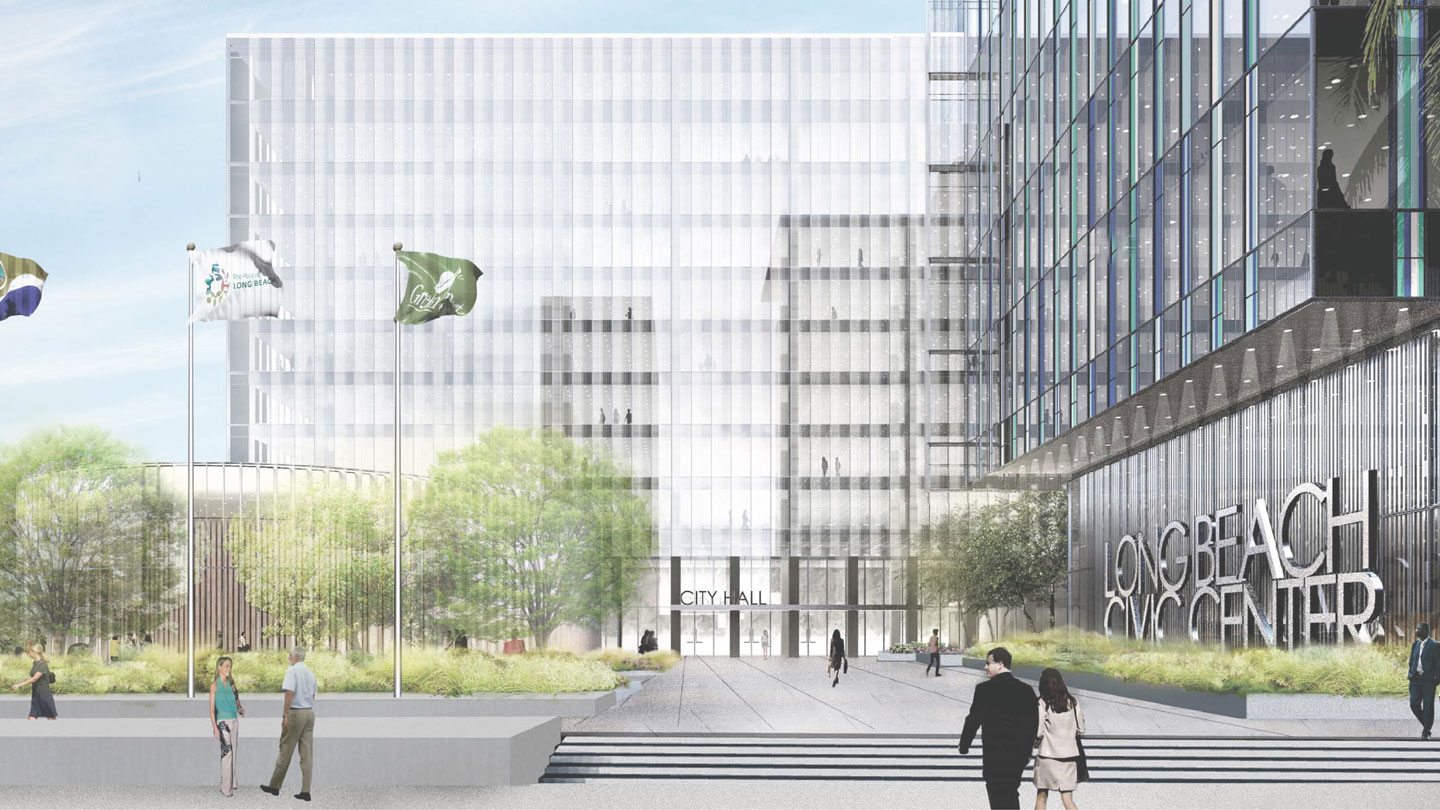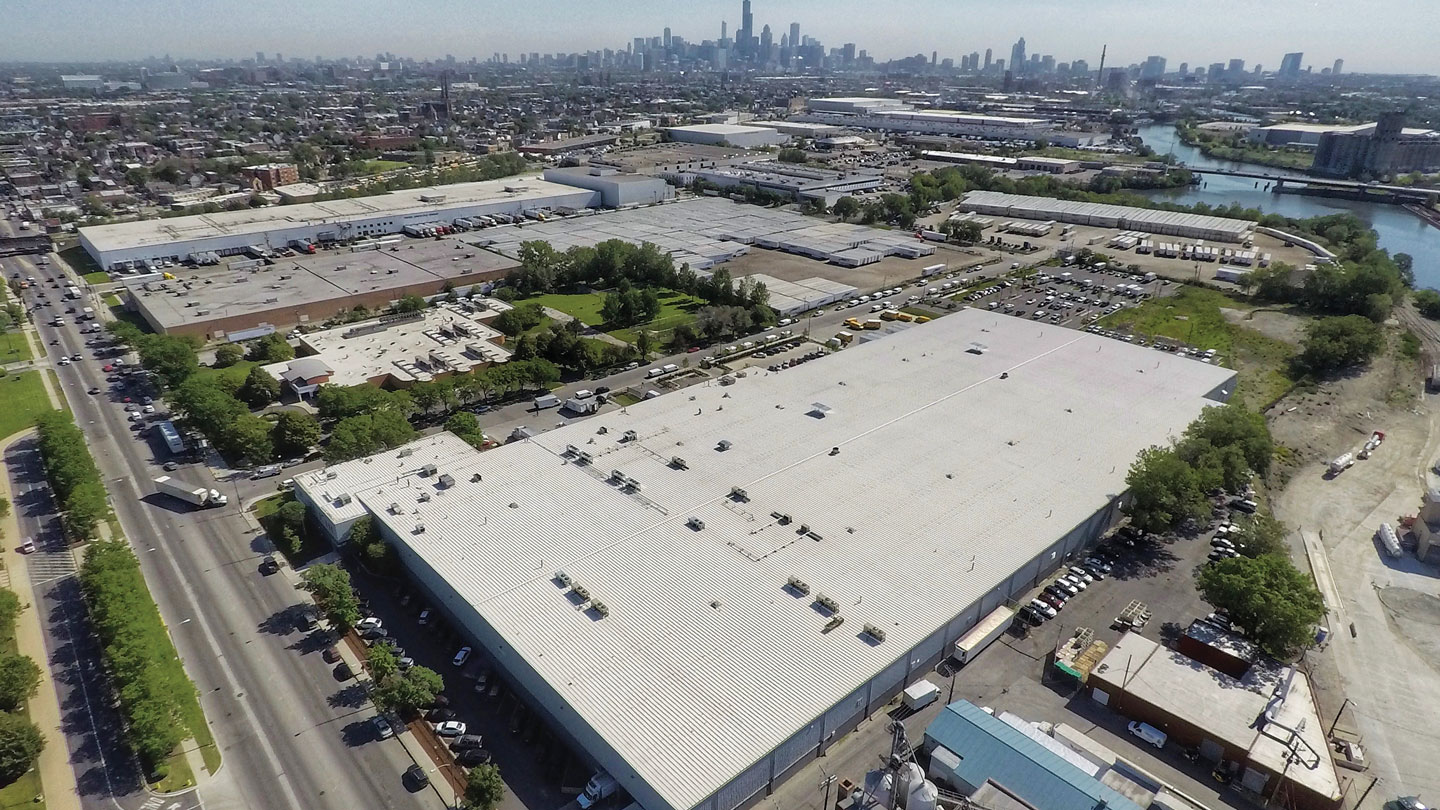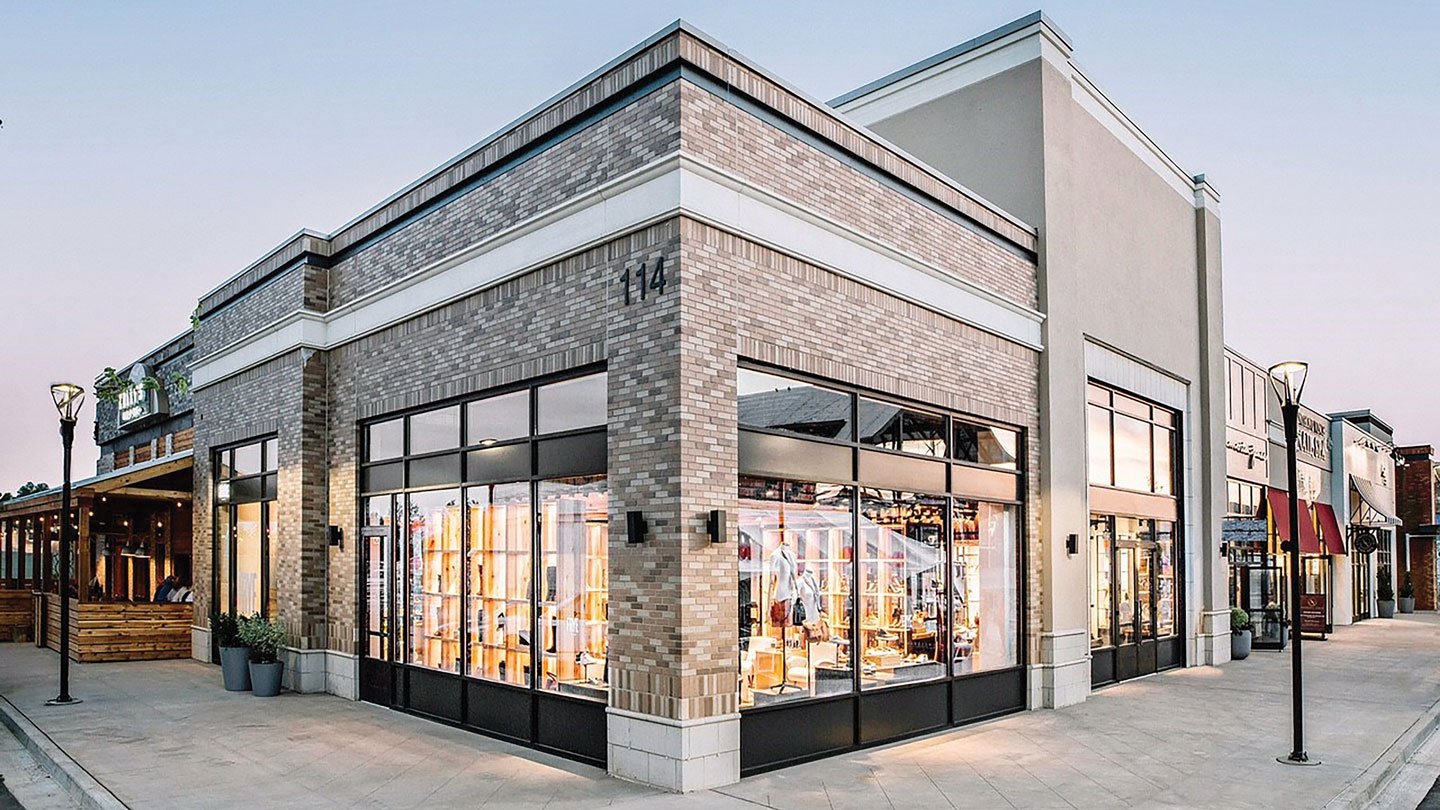This year’s award winner has long been a pioneer in the development of top-quality commercial real estate assets.
Fall 2017 Issue
CRE Development Opportunities In Public-private Infrastructure Partnerships
By: James M. Mulligan and Andrea AustinPublic-private partnerships are emerging as a mechanism that marries the funding of public facilities like courthouses, libraries, government offices and more with private commercial development.
From Obsolete Property to Modern Distribution Facility
By: Matt GoodeA great location plus smart design result in fast lease-up of a last-mile distribution facility on Chicago’s South Side
The Summit at Fritz Farm
By: Lindsay Bayer Shipp and Molly MackenzieEngaging regional “brand ambassadors” results in authentic placemaking for a mixed-use retail destination in Lexington, Kentucky.
Must-Read Articles

Trends in Square Feet per Office Employee: An Update

Reinventing the Mall Shopping Experience

Master Planning: A Powerful Tool to Add Value to CRE Developments
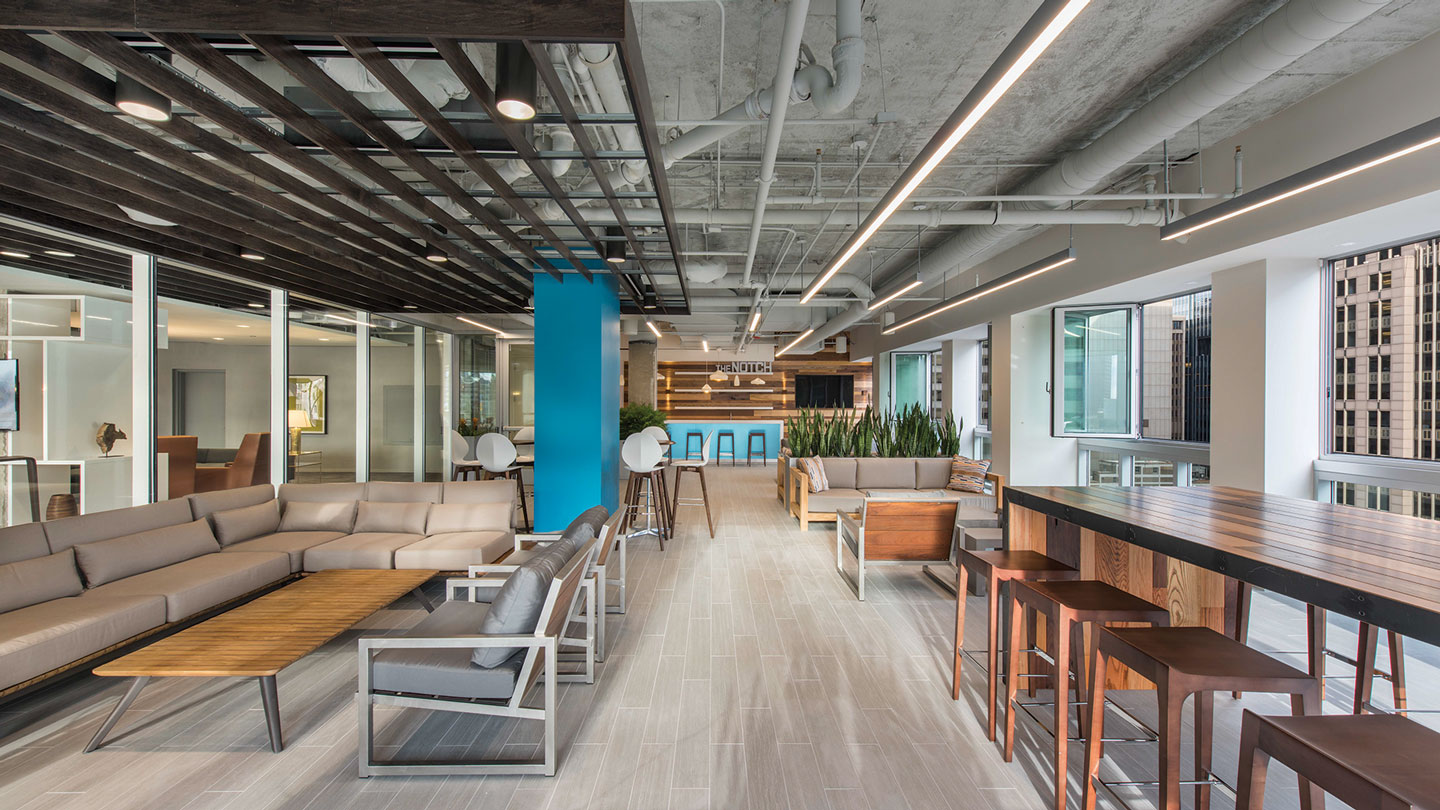
Bringing the Outside In

Evaluating Cap Rate Investment Strategies
- Finance,
- Financiers,
- ...

Smart Energy Retrofit in Chicago
RELATED RESEARCH AND PUBLICATIONS
The NAIOP Market Monitor
Office Space Demand Forecast, Second Quarter 2025
Succession Planning for Commercial Real Estate Firms
PERSPECTIVES
CEO on Leadership: Jaclynn Walsh
Sound Bites from NAIOP's I.CON Conferences
Six Students Receive NAIOP Diversity CRE Scholarships
ADDITIONAL ARTICLES
Creating New Housing Units From Thin Air
Exclusivity Provisions in Commercial Leases
Ride-hailing Becomes a CRE Amenity
Ambient Scenting and Commercial Real Estate
Negotiating Loan Guarantees and Cost Overruns in Development Joint Venture Agreements
Construction Defects Litigation Reform in Colorado
The Rise of Commercial Edible Garden Beds
Private Equity Finance and Securities Compliance for Real Estate Developers
Farm-to-table Dining Goes High Tech at Microsoft
Tenant Communications: Connecting With People Who Are Always Connected
Electric Shuttle Buses Come to Chicago
New & Noteworthy Projects
ARCHIVED ISSUES
View All Archived Issues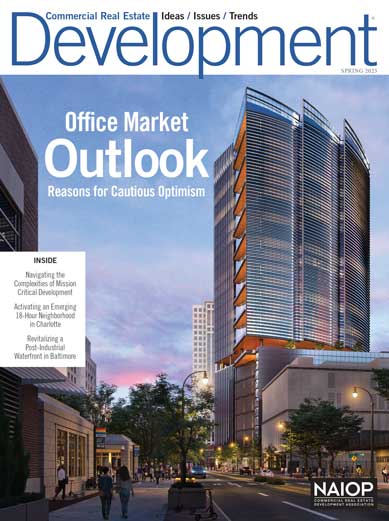 Spring 2025 Issue
Spring 2025 Issue
The spring 2025 issue offers insights about where the office market might be heading over the coming year, explores the complexities of mission critical development, and provides detailed looks at two transformative mixed-use projects: The Bowl at Ballantyne in Charlotte and Baltimore Peninsula in Maryland.
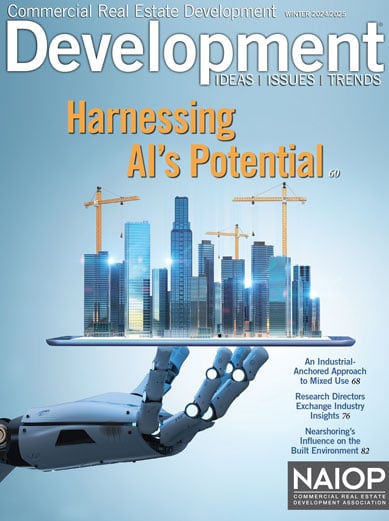 Winter 2024/2025 Issue
Winter 2024/2025 Issue
Development magazine’s winter issue delves into the evolving uses of artificial intelligence in the commercial real estate industry, from lease management and building operations to portfolio assessment and data analysis.
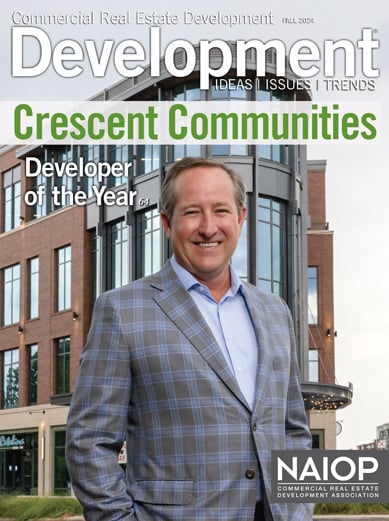 Fall 2024 Issue
Fall 2024 Issue
Development magazine’s Fall issue profiles Crescent Communities, explores the growing impact of spaceport real estate around Houston and along Florida’s Space Coast, the commitment to prioritize employee well-being and environmental stewardship in the design of REI Co-op’s latest distribution center, and the innovations involved in the development of EVE (Electric Vehicle Enclave) Park in London, Ontario.


